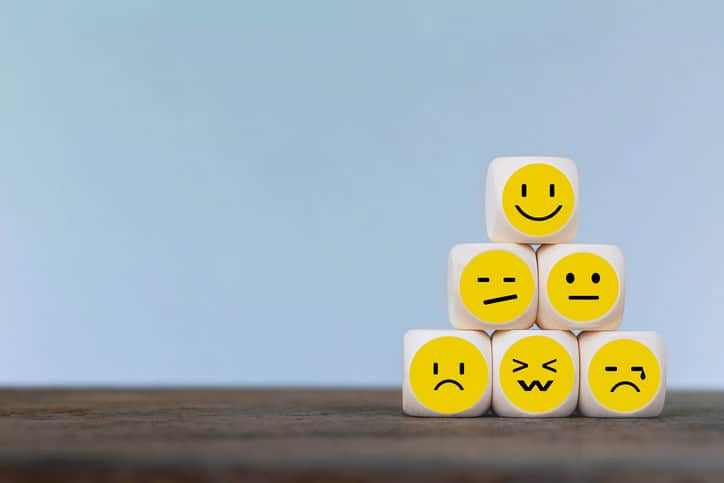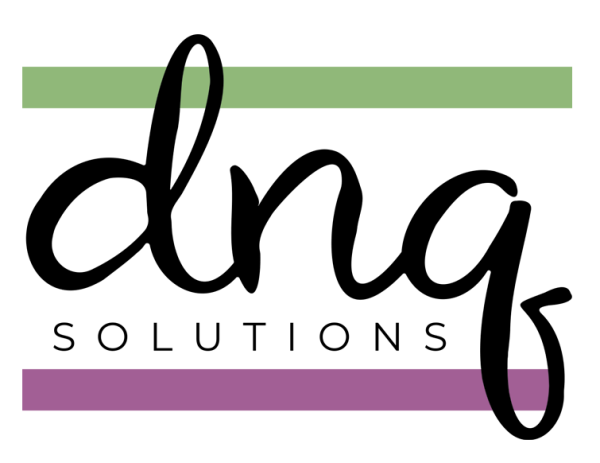
Getting organized can be an emotional process. This is true even for people with very few things to organize. Some things that are in our homes just tug on our heart strings. We know we have no use for them, but we also don’t know what to do with them. It is even harder when emotions get in the way. Once that happens it is challenging to make progress. The logical information our brain needs to make informed decisions just doesn’t make it past those tough emotions. This stops us in our tracks.
Even though it is tempting to avoid dealing with the clutter in our homes when we are feeling emotional, I am here to give you 3 solid reasons to do it anyway.
Before I give you the top 3 reasons for getting organized anyway, I want to remind you that I am not a therapist. I am a certified professional organizer. So, these reasons are based on results I have seen from working with my clients. Also, this is first of several posts on this topic. Next week I will be naming the emotions that, as a professional organizer, I have seen get in the way as I work with clients to get organized.
Getting organized is a personal process
Getting organized is a personal process as well as an emotional one. You decide just how organized you want to be. Maybe you want the flat surfaces in your home to have very little on them or you may be a person that likes a bit of this and that around. Some people want their containers to be matching as well as labeled. Others are fine using mis-matched but perfectly functional containers that are also labeled. The way that works for you is the best way.
If you are living in CHAOS (the can’t have anyone over syndrome) then you probably understand (maybe better than anyone else) what I’m talking about when I say that getting organized is an emotional process. CHAOS reigns when there is so much clutter in the home that you don’t want to open the door to a repair man. And you always meet your friends away from your home.
Here are the top three reasons to embark on this emotional process
Reason #1: Create a peaceful atmosphere
When you start clearing the clutter you bring a more peaceful feeling to your home. Did you know that clutter shouts at you? Yes. It shouts that you have neglected to make a decision about what to do with this thing.
Clutter, even though it is inanimate, can make you very emotional. You may be angry, sad, overwhelmed, grieving, or anxious to name a few emotions. Clutter lets you know that you did not do something. How does it do this? I am so glad you asked!
It sits there out in the open waiting for you to do something. Clutter is a constant reminder. It’s waiting for you to throw it away, recycle it, put it away, file it, or display it. Simply put, clutter is the result of a delayed decision and/or action. Every time you see the pile, it is a visual reminder of actions you have avoided.
Feel your feelings, acknowledge them, and then allow logic to take over. Decide how to deal with the clutter one small space at a time. It sounds simple but we all know it is not.
Give yourself permission to intently focus on one small space at a time for very short periods of time.
You will slowly create more and more space for yourself and bring a more peaceful vibe into your home.
Reason #2: Have time for yourself
As soon as you start removing the clutter from your home, space opens up. The more space that opens up the fewer reminders that are there waiting to shout at you.
You are free to pay attention to yourself.
It will be easier to clean the house because you will not be cleaning around piles of stuff. When your home is easier to clean, it takes less time which leaves you more time to do the things you want (or need) to do for yourself.
Reason #3: Save time and money
As you go about donating, tossing, or recycling the clutter you will discover things you want to keep. It can be like going on a treasure hunt!
Find places to keep them that make sense to you. Then you will know where to find them (saving time) and you won’t be tempted to go out and repurchase the item (saving money).
You may be thinking to yourself this is all well and good but what if I come across something that I don’t know what to do with.
Maybe you are worried that if you get rid of it (toss, recycle, or donate) you will need it and then you will regret your action.
This is where the problems begin. Emotions get involved and logic runs away.
Emotions get in the way
Acknowledge that getting organized is an emotional process then, give yourself permission to put those things aside that make you too emotional to think clearly. You may want to have a Pending Box. A place to put those things you don’t know what to do with or that you can’t release just yet.
When you are feeling clear headed return to the Pending Box and decide when you will revisit the items the box contains. It’s totally up to you. Sometimes when you feel in control it’s easier to be more logical and less emotional.
Once you understand that getting organized can be an emotional process but that the result is worth it, you will want to surround yourself with those who support your mission.
Look for non-judgmental help in the form of a friend or a professional organizer. Both NAPO (the National Association of Productivity and Organizing Professionals) and ICD (Institute for Challenging Disorganization) have directories. Search the directory for a professional organizer in your area.
If you prefer to work on your own, consider joining a clutter support group. Jonda Beattie and I run a clutter support group called Clear Space for You. We provide organizing advice and tips on breaking projects down into manageable steps.
There are lots of options out there pick the one the suits you best and give it a try.
Diane N. Quintana is a Certified Professional Organizer® ,a Certified Professional Organizer in Chronic Disorganization®, Master Trainer and owner of DNQ Solutions, LLC and co-owner of Release●Repurpose●Reorganize, LLC based in Atlanta, Georgia.


I think your “Pending” box is key to moving forward. Too often, I find clients get in their own way, either because they feel they have to make every decision on the first go-round or because one obstacle muddies their thinking. I have lots of little expressions to use when clients get emotional over being stuck, things that minimize the stress, like, “Well, this is just a Level One purge, so we’re making the easy decisions first” or “Let’s put a pin in this one and circle back after we make the easier choices.”
Some clients want to know what the “right” number of X kind of things (shoes, coffee cups, whatever) is to keep, because the overriding emotion is anxiety over doing “the right” thing, so we mitigate that anxiety with saying that you only need to find what’s right *for you*. Some organizers are minimalists; I’m not at all. Everything can be found quickly and easily, but I believe that if one keeps things well-repaired and dusted, tidy and accessible, then that’s organized “enough.” If your space is functional and doesn’t cause dismay or prevent social or other activities, what’s in your space isn’t clutter. You got the balance just right in this post; address the emotional, do the organizing anyway, and remember that YOU call the shots!
This is a wonderful post, Diane! I struggle with not knowing what to do with certain things. My mom passed away in 2008 and I still have things of hers in boxes that when I look at them, I know I don’t want them, but I feel like I can’t just throw them away either.Having said that, when I get in the right frame of mind, I can load up the car quite easily with stuff we no longer need, like old toys, and donate it to our local thrift store who will make money from selling these items to help others. That makes me feel good! :)
I find that most people call me because of reason #1, they want to create a clear calm space. I think it’s that people feel they can control their environment when everything else in the world seems uncontrollable.
Organizing IS an emotional process, at least it is for many of my clients. I love how you described clutter as “shouting” out to you. I never thought of it in that way, but completely understand what you are describing. It’s a visual reminder (or bull horn) of those postponed decisions. And that takes up more emotional energy. So investing time in the organizing process will free up your emotional, mental, AND physical space. Beautifully and sensitively described. Love this one, Diane!
I just “feel the love” in this one. I think we POs understand that there are complex connections between us and our stuff… probably more than anybody! I think the perception that organizers are going to come in and tell you to “just get rid of everything” is way off base. I find my presence can be helpful to process those emotions, not deny them.
Life is easier when your space is clutter free. I completely agree. It’s easier to work, clean, cook, do laundry.. everything.
I look forward to upcoming blogs on this topic!